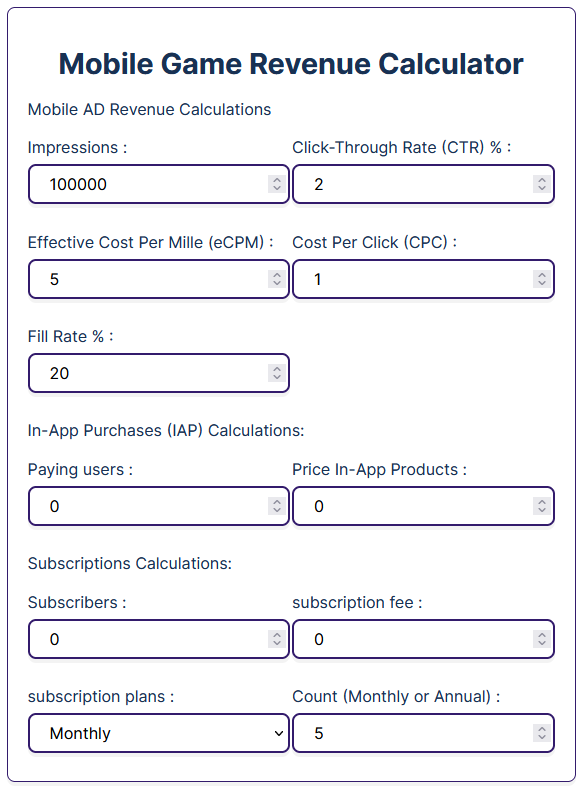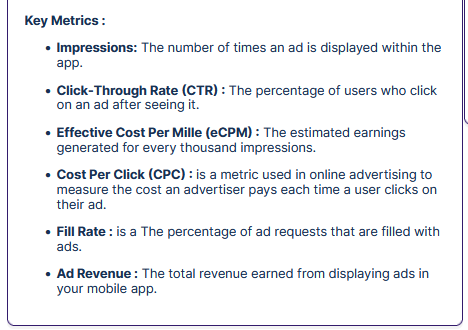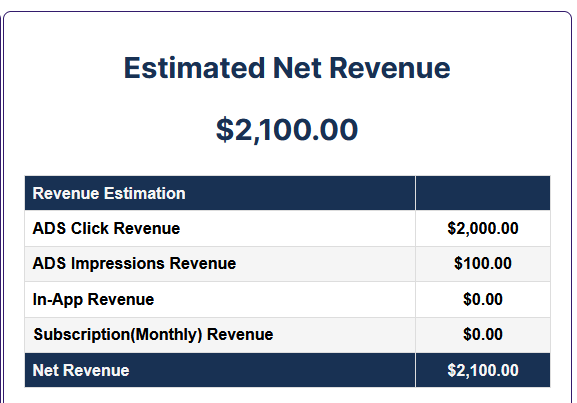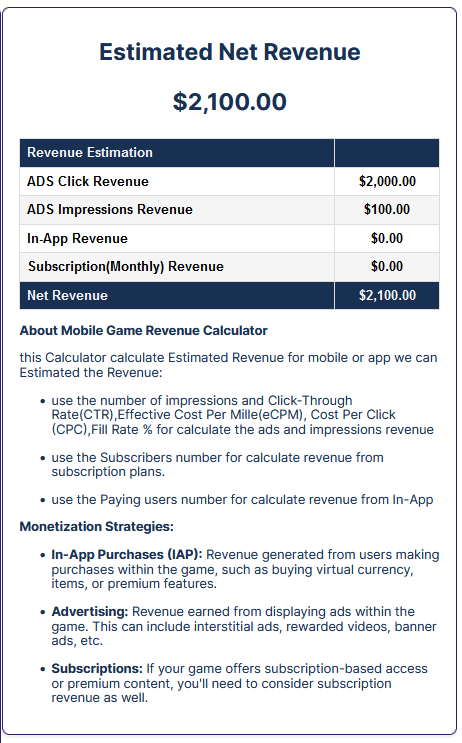In today’s booming mobile gaming industry, developers face the daunting task of not only creating engaging games but also ensuring they generate revenue. One of the crucial tools in their arsenal is the mobile game revenue calculator. This tool helps developers estimate potential earnings, plan monetization strategies, and make informed decisions throughout the game development process. However, with a myriad of options available, choosing the right revenue calculator can be overwhelming. Here’s a guide to help you navigate through the selection process. https://www.one-calculator.com/mobile-game-revenue-calculator.html

- Features and Accuracy: When evaluating revenue calculators, prioritize accuracy and comprehensive features. Look for calculators that take into account various revenue streams such as in-app purchases, advertisements, subscriptions, and sponsorships. Additionally, ensure that the calculator considers factors like user acquisition costs, retention rates, and platform fees to provide more precise revenue projections.
- User-Friendly Interface: Select a revenue calculator that has an easy-to-use UI. The tool should be easy to use for developers, marketers, and other stakeholders. Enhancing usability and efficiency can be achieved through interactive components, a clear layout, and customisable inputs.

- Data Integration: Consider revenue calculators that offer data integration capabilities. These tools should allow you to import relevant data from analytics platforms, ad networks, and app stores. By leveraging real-time data, developers can make data-driven decisions and adjust monetization strategies accordingly.
- Flexibility and Customization: Every mobile game is unique, so the revenue calculator should offer flexibility and customization options. Look for calculators that allow you to adjust parameters such as user engagement metrics, pricing models, and advertising formats to reflect your game’s specific characteristics and objectives.
- Cost and Value: Analyse the revenue calculator’s price versus the benefits it offers. Some calculators are free to use for basic functions, but others could charge a one-time fee or require a subscription to access additional capabilities. When choosing your choice, consider your financial constraints as well as the expected return on investment.
- Reputation and Reviews: Lastly, research the reputation of the revenue calculator and read reviews from other developers. Feedback from industry professionals can offer valuable insights into the reliability, performance, and overall satisfaction with the tool.

In conclusion, selecting the right mobile game revenue calculator is a crucial step in optimizing monetization strategies and maximizing profits. By considering factors such as features, accuracy, usability, data integration, flexibility, support, cost, and reputation, developers can choose a tool that meets their needs and contributes to the success of their mobile games.


